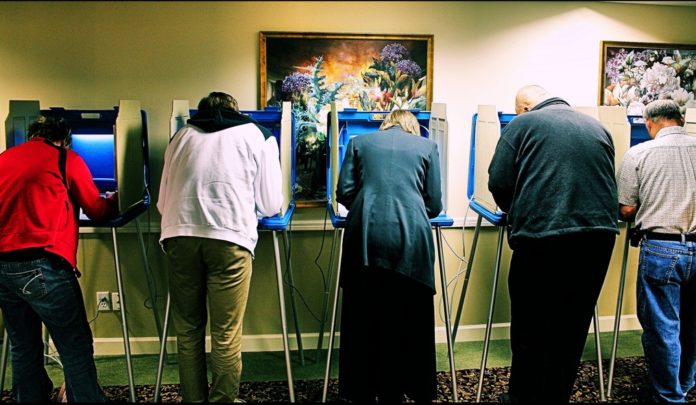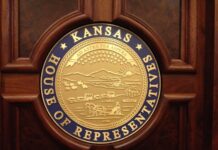Secretary of State Scott Schwab said Tuesday that he was holding off on immediately deciding the future of a controversial national database employed to detect voter fraud.
Appearing before the Senate elections committee, Schwab was asked about the future of the Interstate Voter Registration Crosscheck Program and if there were plans to move to an alternative considered more exact and secure.
Crosscheck compares voter registration records from one state with other participating states to check for dual voter registrations and possible double voting.
Schwab said he wants to allow a Crosscheck-related lawsuit in Indiana to be resolved before deciding whether to return to using the database. The database has been dormant since 2017.
“We’re just letting it be dormant until all lawsuits are done,” Schwab said. “We don’t want to make a change and interfere with another lawsuit. We’d just rather keep our hands clean.”
Schwab was referring to a legal battle in Indiana where a lawsuit was filed challenging a state law that allowed election officials to purge voters from the rolls without notice using the Crosscheck system.
Last summer, a federal appeals court upheld a preliminary injunction blocking the law, but the case is still proceeding in district court.
Schwab said his office could technically jump start Crosscheck today if it wanted.
“It’s secure enough and there are enough participants that would want us to,” he said, “but we’ve just decided to keep our hands off and just not even really talk about it much until this other lawsuit has been resolved and we can have a long-term plan about whether to do Crosscheck or not.”
He cautioned lawmakers that if they want to move to the alternative system known as ERIC – short for Electronic Registration Information Center – it would cost the state a significant amount of money.
Schwab’s office recently settled a lawsuit with the American Civil Liberties Union over Crosscheck.
The settlement stipulated that the secretary of state must implement information safeguards before the program could resume.
The ACLU argued in its lawsuit that former Secretary of State Kris Kobach recklessly ran the Crosscheck program by sharing personal voter information in unencrypted emails that left voters vulnerable to identity theft.
The lawsuit cited an instance from November 2017 when sensitive information about Kansas voters was released as part of an open records request filed in Florida seeking information about the Crosscheck program.
The Florida elections office released 200 emails, including one from Kobach with unencrypted documents that contained voters’ partial Social Security numbers and other personal identifying information, according to the lawsuit.
The lawsuit alleged that Kobach failed to redact the partial Social Security number of 945 voters listed in the document.
The lawsuit was brought on behalf of three Kansas residents who were inaccurately flagged for being registered to vote in Florida and Kansas. The lawsuit said all three shared the same names with voters in Florida.
The lawsuit said personal information from all three voters was compromised when Florida fulfilled the 2017 open-records request that included the unencrypted email from the Kansas secretary of state.
















